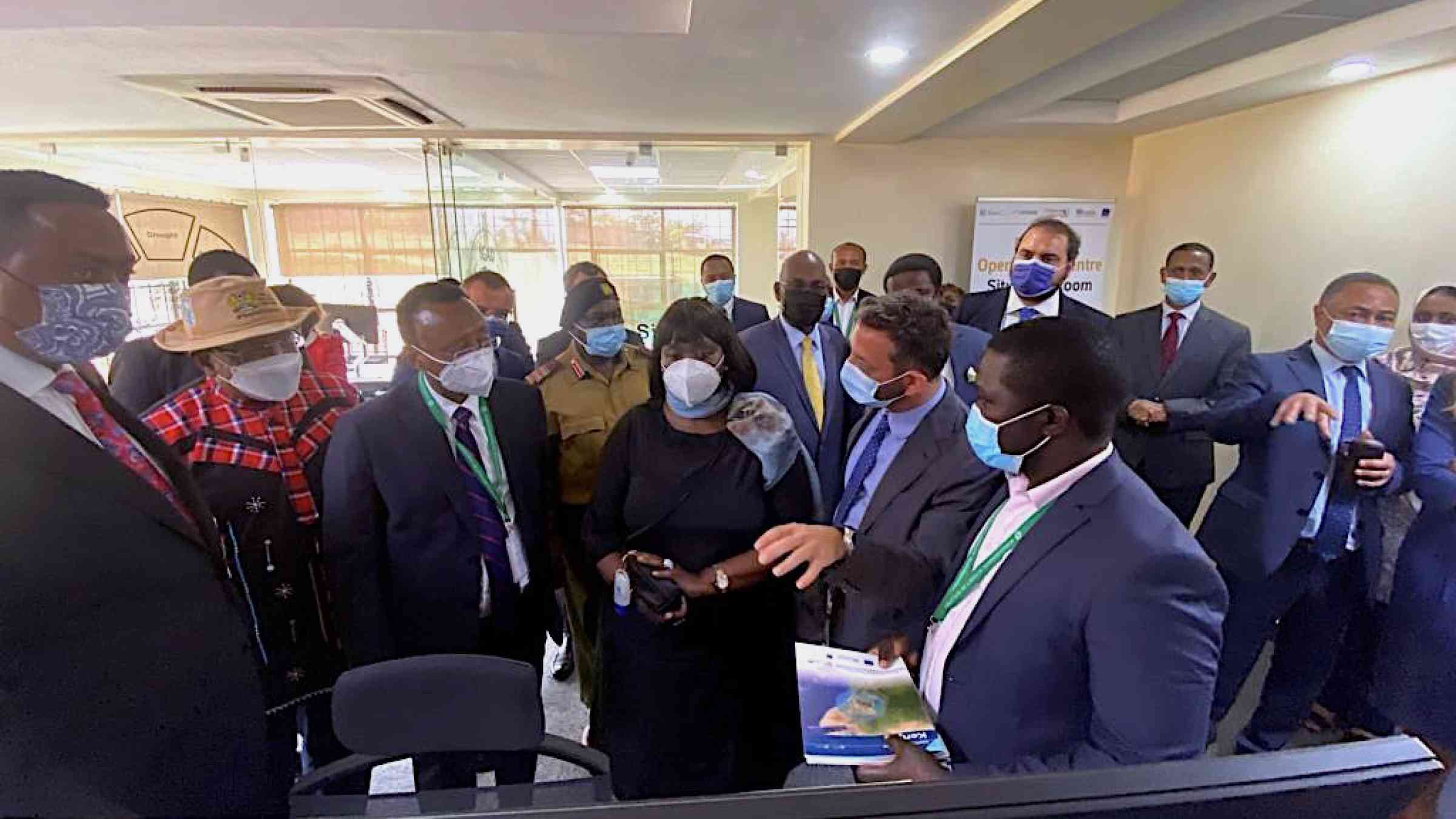IGAD Climate Centre Unveils Disaster Operations Centre

The Intergovernmental Authority on Development (IGAD) Climate Prediction and Application Centre (ICPAC) was officially opened by His Excellency President Uhuru Kenyatta in Nairobi.
President Kenyatta addressed the ICPAC inauguration stating that “we live in uncertain times, increasing temperatures and sea levels, changing precipitation patterns and more extreme weather are threatening human health and safety, food and water security and socio-economic development in Africa. Africa, while currently responsible for a negligible amount of total global greenhouse gas emissions, is under significant threat from climate change.”
In the same context, the IGAD Executive Secretary H.E Dr. Workneh Gebeyehu presided over the unveiling of ICPAC’s Disaster Operations Centre (DOC) in the presence of H.E. Amb. Raychelle Awuor Omamo, the Cabinet Secretary for Foreign Affairs, H.E. Keriako Tobiko, the Cabinet Secretary for the Ministry of Environment and Forestry, and H.E. Alberto Pieri, Italian Ambassador to Kenya.
The establishment of the situation in the Centre was funded by the Government of Italy and supported with guidance and technical knowledge from UNDRR, African Union, and the CIMA Research Foundation.
“In times of climate extremes and increased intensity and frequency of hazards, it is key to provide quality climate services and early warning. Climate doesn’t stop at borders and having strong intergovernmental institutions able to provide early warning is key”, said ICPAC’s Director Dr. Guleid Artan. [1]
The DOC situation room will play a key role in multi-hazard monitoring and issuance of early warnings for drought, flood, pests like the desert locust, extreme rainfall, and food insecurity in the region. IGAD covers 11 East African countries with a population of 375 million.
It will be connected to the Continental situation room for DRR at the African Union in Addis Ababa, Ethiopia, and the ACMAD situation room in Niger. This initiative will form the beginning of a continental multi-hazard early warning system in Africa, which will deliver early warnings to African Member states to support their early action and trans-boundary risk management efforts.
To further capacitate the situation room, UNDRR has generated research on regional and national risk profiles to inform both the early warning systems and policy making. During the ICPAC inauguration Luca Rossi, Deputy Chief at UNDRR Regional Office for Africa, presented the impact-based early warning system to the high-level delegation.
Recent major outputs include risk profiles, including the IGAD Regional Flood Risk Profile. This work was undertaken in partnership between IGAD-ICPAC, UNDRR, WFP, with support from the Government of Sweden, the European Union, and scientific support from the CIMA Research Foundation.
This risk profile focuses on floods, which is one of the priority hazards for the IGAD Disaster operations Centre. The risk profile will provide estimates of present and future flood impacts. Accordingly, the forecasts made by the situation room will trigger anticipatory actions by authorities to prevent or mitigate disaster impacts. In the upcoming months, the programme leading to the establishment of the situation room will further focus on capacity development facilitating the partnership between international and African scientific centres and joint training of the staff of African institutions at continental, regional, and national levels.
To see the video from the launch click here.
[1] Quote Sources: https://mailchi.mp/71a8cc9ffd50/climate-outlook-forum-bulletin-impacts-and-sectoral-advisories-6252048